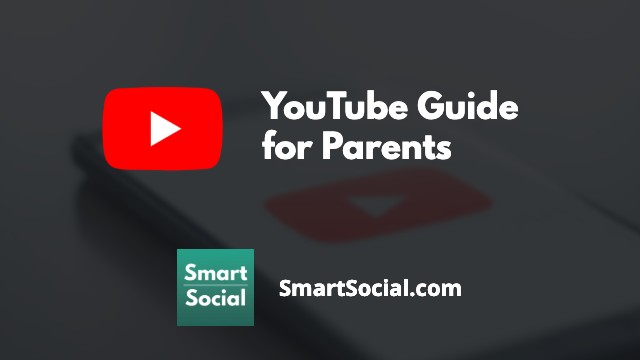Ultimate Guide to Sextortion, Online Enticement, Teen Sex Trafficking, & Human Trafficking
Green Zone App
(Click here to learn more)
Dangerous Social media challenge
(Click here to learn more)
Red Zone App
(Click here to learn more)
Gray Zone App
(Click here to learn more)
What is Sextortion?
A crime that happens online when an adult convinces a person who is younger than 18 to share sexual pictures or perform sexual acts on a webcam. Sextortion can start on any site where people meet and communicate. - Federal Bureau of Investigation
How does sextortion begin? (Source: FBI)
- On mobile or online websites, apps, or games
- Victims may be approached with compliments, flattery, or romantic interests
- Offers of a modeling contract
- Offers of video game credits, codes
- Offers money, cryptocurrency, or gift cards
- Threats by claiming they already have a photo they will share with others
- Threats to harm the student or their friends or family
Online victims are often targeted on platforms they frequent. Victims reported that the first contact with their perpetrator typically came in the form of a social media friend request. - Thorn.org
The FBI has interviewed victims as young as 8, and the crime affects children of both genders and crosses all ethnic and socioeconomic groups. The victims are honor-roll students, the children of teachers, student athletes, etc. The only common trait among victims is Internet access. -FBI
Sextortion statistics (Source: National Center for Missing & Exploited Children)
- Child sextortion victims range from 8 to 17 years-old
- The number of sextortion reports to the NCMEC between 2019 and 2021 more than doubled
- 79% of the offenders in early 2022 were seeking money
Where criminals target young people online
- Social media platforms (Instagram, Facebook, Snapchat, TikTok)
- Chatrooms and online forums (Reddit)
- Chat and messaging apps (Discord, Twitch, 130+ Popular Teen Apps)
- Online job ads
- Dating websites and dating apps
- Porn websites
- Multiplayer online video games
People who do not believe that their children could ever become victimized online are living in an unrealistic world. Regardless of if your child makes 'As' [in school] or not, that child has the potential to become victimized through online technologies. I think it is very important for parents of all socioeconomic status and with all different roles in society to take this problem very seriously. - Melissa Morrow, Supervisory Special Agent, Child Exploitation Squad, FBI
Sextortion Red Flags
(Source: National Center for Missing & Exploited Children)

- Approach a child on social media after learning about the child’s interests, friends, school, etc
- Quickly ask for nudes after following or friending a child on social media
- Move communications from one online platform to another for a more private chat
- Offers of reciprocation (“I’ll show you, if you show me”)
- Pretending to work for a modeling agency
- Establishing a friendship/romantic relationship
- Using multiple false online identities to contact a child
- Pretending to be younger or the opposite gender
- Accessing the child’s online account unauthorized to steal sexual images or videos
- Threatening to create sexual images or videos of the child using digital editing tools
.jpeg)
What is Online Enticement?
Online Enticement involves an individual communicating with someone believed to be a child via the internet with the intent to commit a sexual offense or abduction. The term is a broad category of sexual exploitation that includes sextortion. - National Center for Missing & Exploited Children
Warning Signs Your Child May Be In Contact With An Online Predator (Source: Internet Safety 101)
- Becomes secretive about online activities
- Becomes obsessive about being online
- Gets angry when he or she can’t get online
- Receives phone calls from people you do not know or makes calls to numbers that you do not recognize
- Receives gifts, mail, or packages from someone you do not know
- Withdraws from family or friends
- Changes screens or turns off the computer when an adult enters the room
- Begins downloading pornography online
Protect your family and enter for a chance to win cool prizes
Become a member or log in to learn more on this topic
Protect your family and enter for a chance to win cool prizes

., start learning from this page to earn points!*
Hello, I'm Josh, the founder of SmartSocial.com.
Don't leave this page until you fill out our feedback form that will appear after you learn from the resources...
Here are some of the latest resources at SmartSocial.com
Become a Very Informed Parent (VIP) to get our social media suggestions in your email every Tuesday & Thursday.



Hello, I'm Josh, the founder of SmartSocial.com. Protect your family by taking my 1 minute quiz
This quiz will help you understand how safe your family is


Schools & Districts: Partner with us to protect your community online
Our remote presentations (and website) teach over a million parents and students each year how to be safe so they can shine online. We teach students how their accounts can be used to create a portfolio of positive accomplishments that impress colleges and employers.


Join Our Smart Social Podcast
each week on iTunes
With over 500 episodes, Josh Ochs interviews psychologists, therapists, counselors, teachers, and parents while showing you how to navigate social media to someday shine online.
Listen on:



.jpg)

.jpg)

_.jpg)
.png)